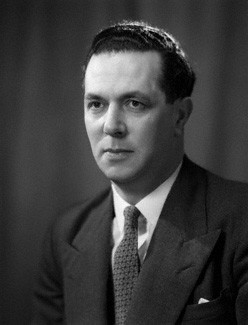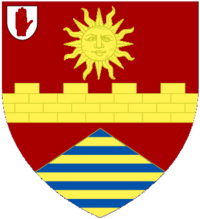Keith Joseph facts for kids
Quick facts for kids
The Lord Joseph
|
|||||||||||||||||
|---|---|---|---|---|---|---|---|---|---|---|---|---|---|---|---|---|---|

Joseph in 1964
|
|||||||||||||||||
| Secretary of State for Education and Science | |||||||||||||||||
| In office 11 September 1981 – 21 May 1986 |
|||||||||||||||||
| Prime Minister | Margaret Thatcher | ||||||||||||||||
| Preceded by | Mark Carlisle | ||||||||||||||||
| Succeeded by | Kenneth Baker | ||||||||||||||||
| Secretary of State for Industry | |||||||||||||||||
| In office 4 May 1979 – 11 September 1981 |
|||||||||||||||||
| Prime Minister | Margaret Thatcher | ||||||||||||||||
| Preceded by | Eric Varley | ||||||||||||||||
| Succeeded by | Patrick Jenkin | ||||||||||||||||
| Secretary of State for Health and Social Services | |||||||||||||||||
| In office 20 June 1970 – 4 March 1974 |
|||||||||||||||||
| Prime Minister | Edward Heath | ||||||||||||||||
| Preceded by | Richard Crossman | ||||||||||||||||
| Succeeded by | Barbara Castle | ||||||||||||||||
|
|||||||||||||||||
|
|||||||||||||||||
|
|||||||||||||||||
| Personal details | |||||||||||||||||
| Born |
Keith Sinjohn Joseph
17 January 1918 London, England |
||||||||||||||||
| Died | 10 December 1994 (aged 76) London, England |
||||||||||||||||
| Political party | Conservative | ||||||||||||||||
| Spouses |
Hellen Guggenheimer
(m. 1951; div. 1985)Yolanda Castro Sheriff
(m. 1990) |
||||||||||||||||
| Parent |
|
||||||||||||||||
| Alma mater | Magdalen College, Oxford | ||||||||||||||||
| Military service | |||||||||||||||||
| Allegiance | |||||||||||||||||
| Branch/service | |||||||||||||||||
| Rank | Captain | ||||||||||||||||
| Unit | Royal Artillery | ||||||||||||||||
| Battles/wars | World War II | ||||||||||||||||
Keith Sinjohn Joseph, also known as Sir Keith Joseph, was an important British politician. He was born on January 17, 1918, and passed away on December 10, 1994. He was a member of the Conservative Party.
Joseph worked as a minister under four different Prime Ministers: Harold Macmillan, Alec Douglas-Home, Edward Heath, and Margaret Thatcher. He played a big role in shaping the ideas that became known as Thatcherism. He helped bring the idea of a "social market economy" to Britain. This is an economic system that balances free markets with social fairness. He also helped start the Centre for Policy Studies, a group that develops new ideas for government.
Contents
Early Life and Family Background
Keith Joseph was born in Westminster, London. His family was wealthy and well-known. His father, Samuel Joseph, led a large construction company called Bovis. His father was also the Lord Mayor of London in 1942–43.
The Joseph family was Jewish. When his father died in 1944, Keith, at 26 years old, inherited the title of baronet. This meant he became "Sir Keith Joseph."
Education and Early Career
Keith Joseph went to Lockers Park School and then Harrow School. After that, he studied law at Magdalen College, Oxford, where he did very well. In 1946, he became a special research fellow at All Souls College.
During World War II, Joseph served as a captain in the Royal Artillery. He was injured slightly during fighting in Italy. After the war, he became a lawyer. He also followed in his father's footsteps by becoming an Alderman in the City of London. He worked as a director at Bovis, his family's company, and later became its chairman. He also worked as an underwriter at Lloyd's of London.
Becoming a Member of Parliament
Keith Joseph first tried to become a Member of Parliament (MP) in 1955 but lost by a small number of votes. However, he was elected as an MP for Leeds North East in February 1956. Soon after, he was given a junior role in government.
Working in Government
After 1959, Joseph held several junior positions in the government led by Harold Macmillan. He worked in departments dealing with housing and trade. In 1962, he became the Minister for Housing and Local Government. He started a big plan to build many new council homes. He also wanted more people to own their homes and offered help with mortgage payments.
Helping with Social Services
When his party was not in power, Joseph became a spokesperson for Social Services. He helped start the National Council for the Single Woman and Her Dependants in 1965. He was very important in raising money for groups that support people who care for others. This helped the "carers movement" grow and succeed.
Shaping Economic Ideas
Even though he was known for his conservative views, Prime Minister Edward Heath gave Joseph an important role as Trade spokesman in 1967. Joseph gave speeches about "civilised capitalism," explaining his ideas for how the economy should work. He suggested that the government should spend less money. His ideas were largely adopted by the Conservative Party before the 1970 election.
After the Conservatives won in 1970, Joseph became the Secretary of State for Health and Social Services. This job put him in charge of a very large government department. He worked to improve services in the National Health Service. However, he became more and more against the government's economic plans, which he felt involved too much government control over businesses.
Working with Margaret Thatcher
After the Conservatives lost the election in 1974, Joseph worked with Margaret Thatcher to create the Centre for Policy Studies. This group was a "think-tank" that developed new policies based on free-market ideas. Joseph became very interested in monetarism, an economic idea about controlling the money supply. He convinced Thatcher to support it.
Joseph openly criticized the previous government's economic policies. He gave a famous speech in 1976 called "Monetarism Is Not Enough." In this speech, he argued against older economic ideas and said that an economy needs strong industries that produce wealth.
Many people in the Conservative Party wanted Joseph to become their leader. However, a speech he gave in October 1974 caused controversy. In this speech, he talked about how poverty could affect families over generations. He emphasized the importance of stable family backgrounds for children. The strong reaction to his speech made him decide not to run for party leader.
Joseph then told Margaret Thatcher that if he wasn't going to run, she should. He became her main advisor. Thatcher later called him her closest political friend. They both strongly believed in free-market policies and less government control. Joseph felt that he had not been a "true Conservative" before 1974. He believed that previous governments had relied too much on government control and welfare programs.
When Thatcher became leader in 1975, she gave Joseph a role where he could greatly influence the party's policies. He had a big impact on the Conservative Party's plans for the 1979 election. After the Conservatives won, Thatcher made Joseph the Secretary of State for Industry. He started preparing many government-owned industries to be sold to private companies.
Leading Education Reforms
From 1981, Joseph served as Thatcher's Secretary of State for Education and Science. He began the process of creating GCSEs, which are important exams for students in England and Wales. He also worked to establish a national curriculum, which sets out what students should learn in schools.
His predecessor had stopped plans to combine the old O Level and CSE exams, but Joseph made this happen. He also tried to change how teachers were paid and their contracts. This led to some strikes by teacher unions.
In 1984, Joseph worked on plans for university funding. He wanted to change how financial support was given to students. This led to discussions with other government ministers. A compromise was reached that kept his goal of changing student grants.
Joseph was at the Brighton hotel bombing in 1984 but was unharmed. In 1985, he published a plan for universities. It suggested a system to check the quality of research and predicted that the higher education sector might become smaller. Both ideas were debated. Joseph was a key influence on the Education (No. 2) Act 1986. This law ended corporal punishment (physical punishment) in most schools. It also set up regular parents' meetings and gave parents more say in how schools were run.
Later Life and Legacy
Joseph left the government in 1986 and retired from Parliament in 1987. He was given a special honor called the Order of the Companions of Honour. In 1987, he was made a life peer, which meant he became Baron Joseph and could sit in the House of Lords for the rest of his life. Keith Joseph passed away on December 10, 1994.
His 1976 speech, "Monetarism Is Not Enough," was described by Margaret Thatcher as a speech that "fundamentally affected a political generation's way of thinking." Joseph's main achievement was applying monetarist economics to British politics. He also helped develop the ideas that became known as Thatcherism. He was humble about his own abilities, saying that if he had become leader of the Conservative Party, "it would have been a disaster." The Centre for Policy Studies holds an annual lecture in his memory.
Personal Life
Keith Joseph was married twice. His first marriage was in 1951 to Hellen Guggenheimer. They had four children and later divorced in 1985. In 1990, he married Yolanda Sheriff.
|
Images for kids
 | Bessie Coleman |
 | Spann Watson |
 | Jill E. Brown |
 | Sherman W. White |




